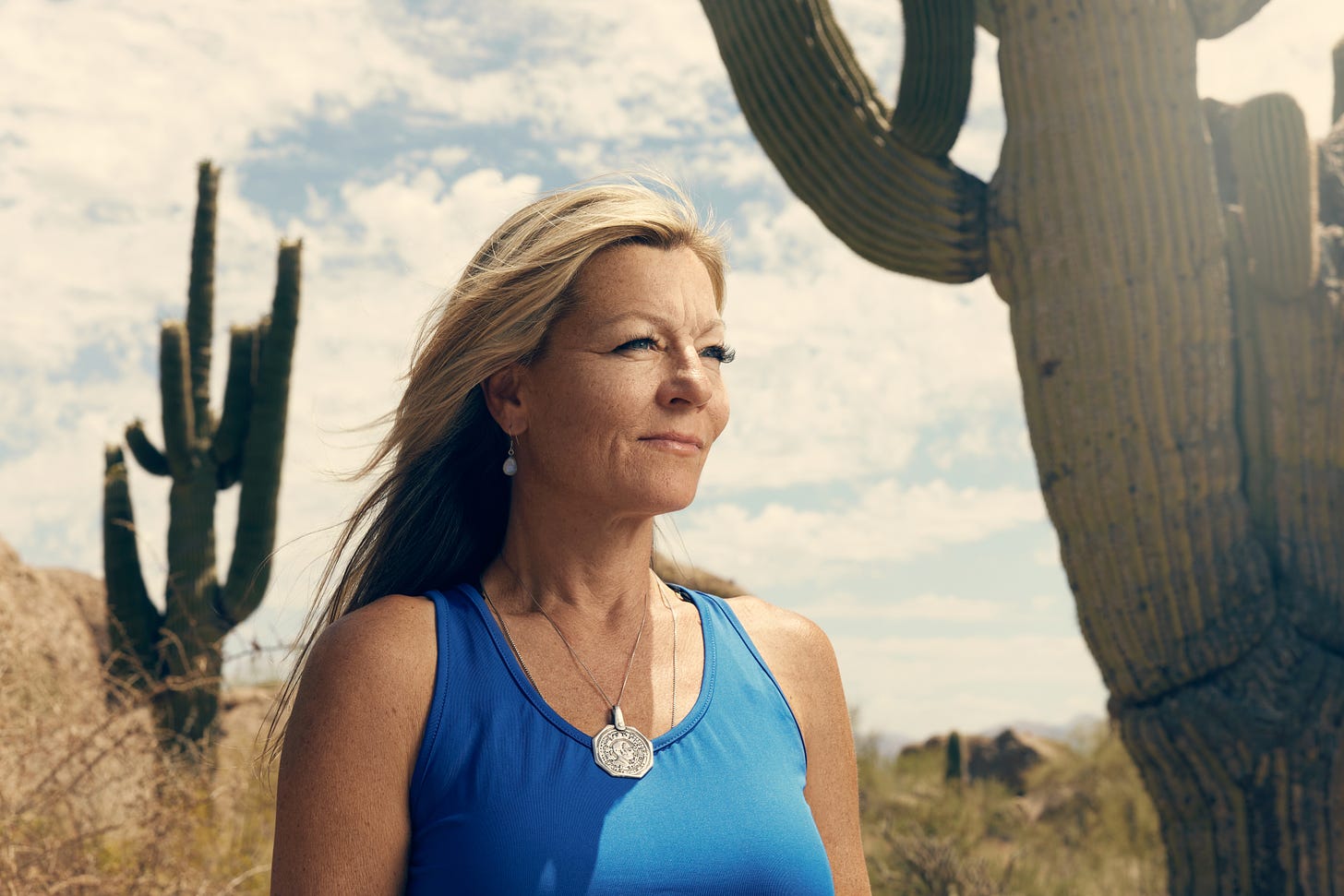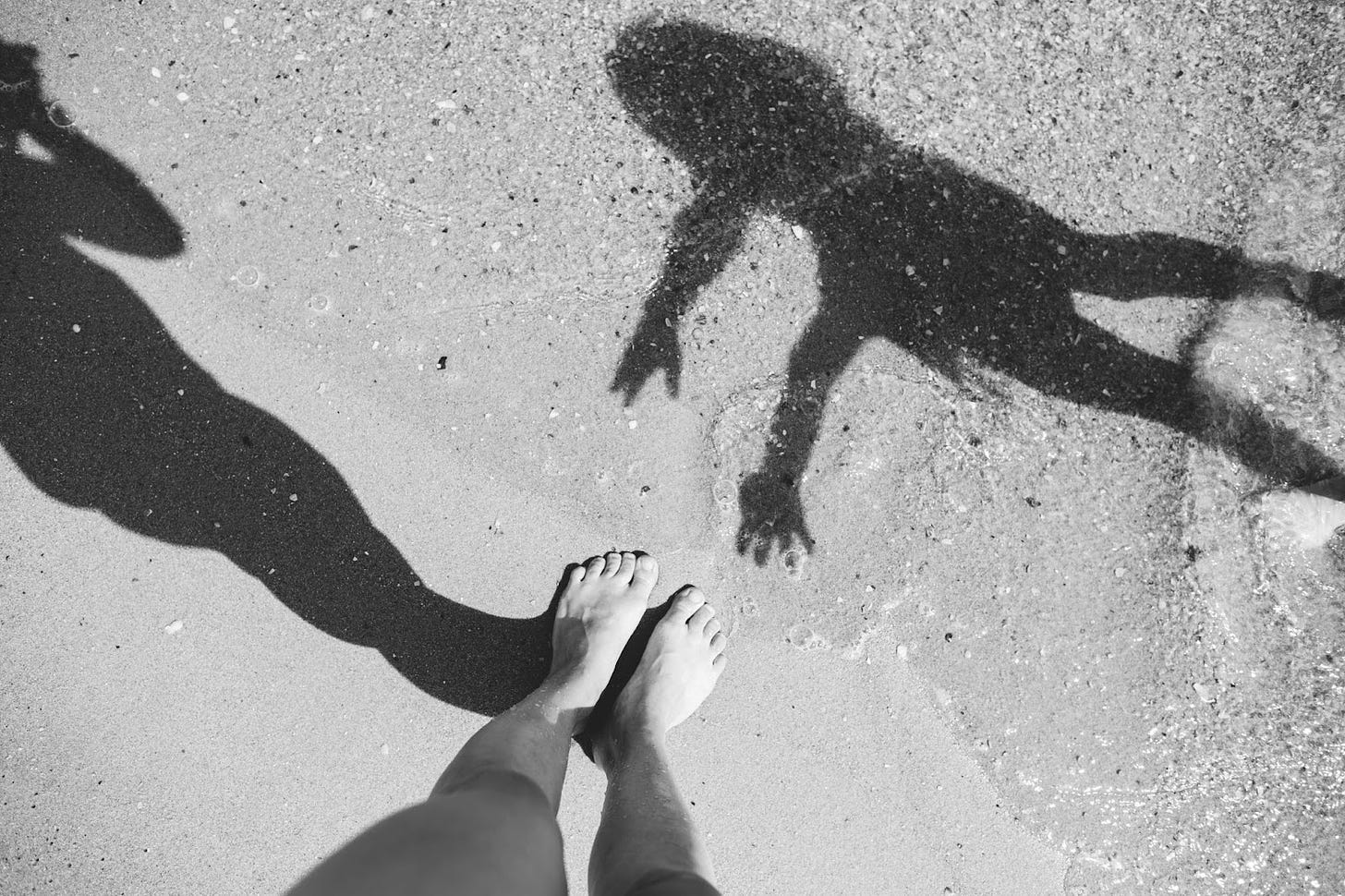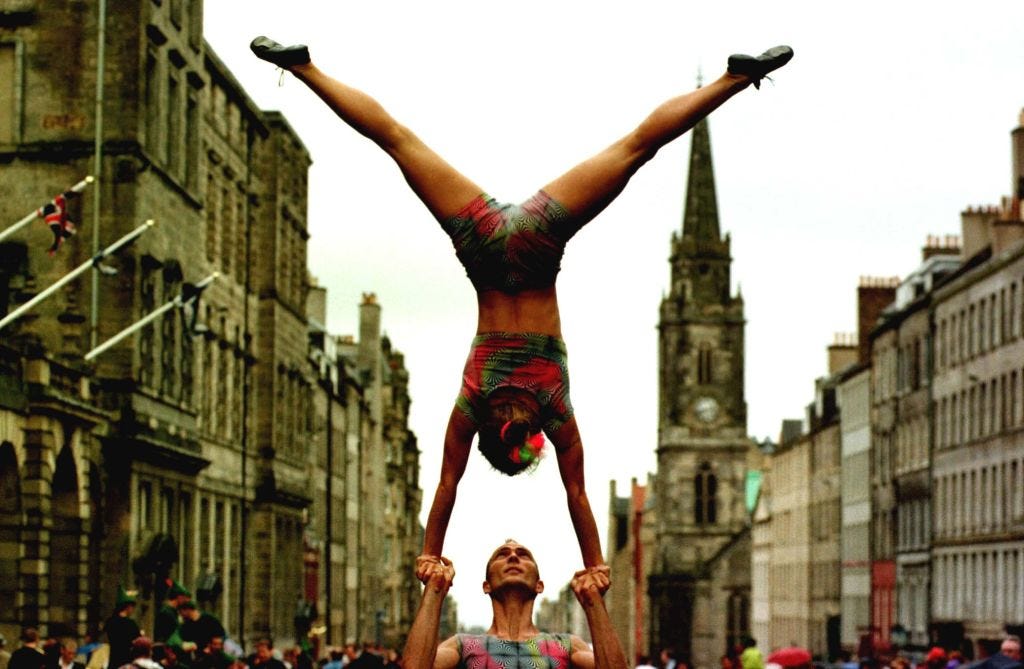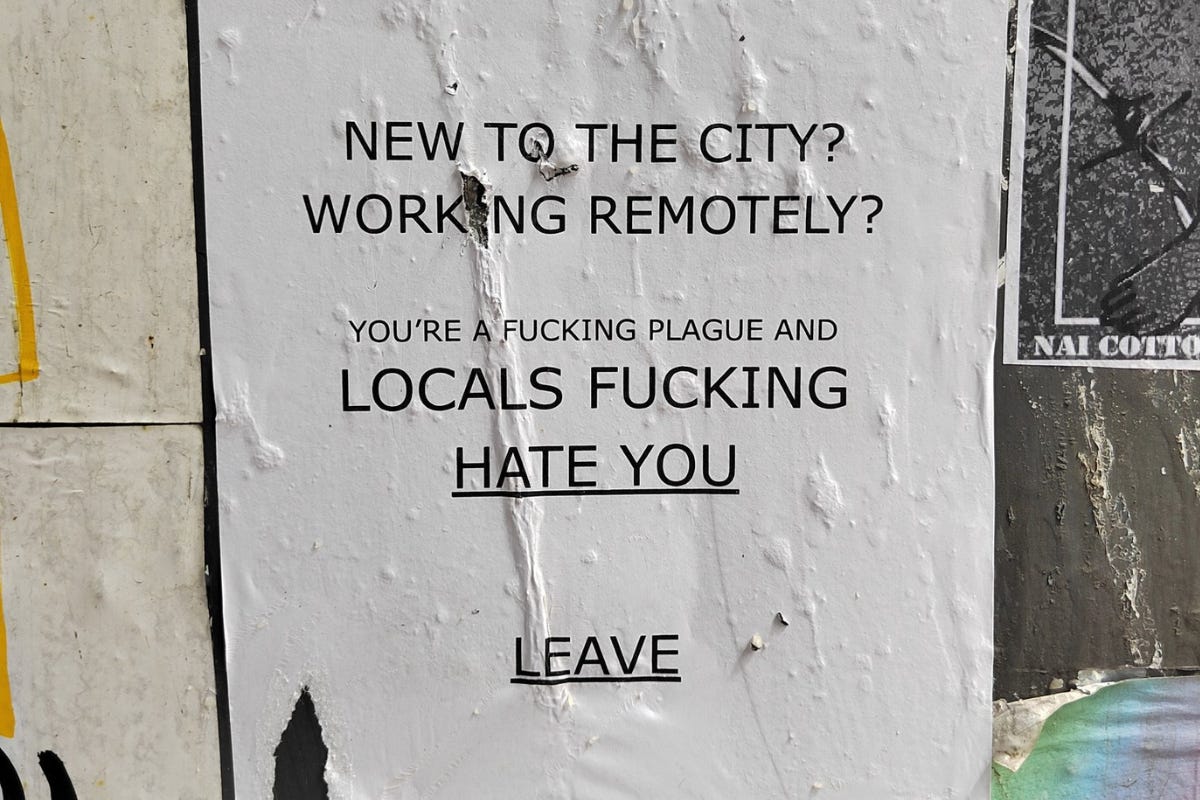Substack Reads: The exotic dancer who snared America’s Most Wanted; coddling in the workplace; plus: the changing face of Mexico City
It’s easy to miss great writing, and this month there have been plenty of incredible stories happening across Substack, starting with Jeff Maysh’s jaw-dropping story about Rebecca Williams, the undercover dancer who snared some of the world’s most dangerous criminals. This year-in-the-making story will grip you from the first sentence—and rightly so. So too will Leah McLaren’s beautifully written memoir, Enmeshment, detailing the complicated relationship she shared with her freethinking mother. Whilst former YouTube superstar Marko Ayling makes his Substack debut with a fascinating report on how digital nomads are igniting a fiery debate in Mexico City.
Regular imbibers of Substack Reads will know that we also love to hear what you’re reading, watching, and listening to across Substack.
If you’re new here—firstly, welcome. Secondly, you can share your favorite Substack writers with us in the comments section below. We look forward to seeing them.
As ever, happy reading!
CRIME
How an undercover exotic dancer helped capture America’s Most Wanted terrorists
Meet Rebecca Williams, the woman who spent five years infiltrating extremists
In January of 2005, the A.T.F. summoned Rebecca Williams to its Phoenix office. Moreland ran his eyes over her. “She’s lived a little in life, she has a lot of street smarts, and she’s run with some rough crowds,” he recalled thinking. She had an edge and would be believable, he concluded. When he told Rebecca there had been a bombing that seriously injured a Black person, she was intrigued. “They said they needed me to just go and talk to a couple of guys and everything would be recorded. They said that I could get up to $100,000.”
Here was a chance to fight crime and make money. Still, she told Moreland, she needed to go home and think about it. Moreland had shown her photos of Dennis and Daniel Mahon but warned her not to look them up. Naturally, Rebecca started digging. Dennis Mahon was “one of the scariest guys around” in the 1990s, according to the Southern Poverty Law Center, which tracks hate groups.
A day later, she called Moreland back. She’d do it.
LISTEN
What does good sex look like in 2022?
The author of Rethinking Sex, Christine Emba, explains how to turn on another human being now
—Randa in Hotsingles.nyc
RELATIONSHIPS
Enmeshment
How do you deal with a mother who was brilliant, beautiful, charismatic … and primarily interested in herself? Leah McLaren explains
Mum often described herself as having been “born without the nurturing gene,” a kind of self-fulfilling prophecy that established her former life as a small-town housewife and stay-home mother had been a passing charade. After leaving our family and moving to the city she took the opportunity to reorganise her priorities according to her own interests, which in turn became my own. Romance, work, reading, conversation, parties, and holidays (with her single friends) took precedence over everything else.
We were close friends, our relationship was open and loving, but she was clear about her parenting philosophy, which she openly, in a joking-not-joking way, described as “benign neglect.” Mum absolutely did not attend parent-teacher meetings, she had zero interest in homework or report cards. She did not believe in bedtimes or curfews or family meals that weren’t dinner parties—she was an excellent cook, but there was rarely any food in the house. Smoking and drinking was fine, so long as I wasn’t messy about it and I didn’t touch the scotch. I was welcome to stay out all night or bring my boyfriends home, so long as they were tall, did not leave their shoes strewn about, and read The Globe and Mail.
CORPORATE CULTURE
The coddling of the corporate workplace
Does an office culture built around greater flexibility and personal convenience really make for exceptional results? Or have we gone too far?
—Bruce Daisley in Make Work Better
Alongside comments like Alphabet boss Sundar Pichai warning Googlers that they will have to work with “more hunger than we’ve shown on sunnier days,” it’s a sign that leaders are starting to wonder if they’ve coddled their teams too much. The chill wind-back starts here.
It begs the perennial question about working conditions, whether the dirty truth of exceptional results is that they are often created by driving teams unreasonably hard. Want workers to work through lunch and in the evenings? How about we put a pool table in and lay on food for those who stay late.
I found myself wondering this when I examined two organisations, Buffer and Basecamp, that used PR agencies to boast of offering generous time off and flexibility to their workers. It honestly sounded great, until I looked into the published financial results of both firms.
PERFORMANCE ANXIETY
Fringe benefits
Forty-two years ago, Jo Clifford was an unknown performer trying to get a break at the Edinburgh Fringe Festival. As she returns this week, she looks back on what she’s learned
—Jo Clifford in The Light Inside
It’s 1980, and the first time I’ve had anything on at the Festival; the first time I’ve ever had anything performed at all, in fact.
And I’m so proud: proud of the show and so proud of my newborn daughter, whom I’m carrying in a sling. I anxiously scan the road to the venue to see if anyone is coming to the show.
But nobody comes, because it’s an utterly unknown show in an utterly out-of-the-way venue, and we don’t know anything about publicity at all, and the audience is tiny, and no one is being paid, but my daughter is so amazingly beautiful, and it’s the first time I’ve seen my words being performed in front of an audience. And even though they’re only a handful, I hear and feel them laughing, and I know.
[…]
And that’s how it begins. 42 years ago.
42 years of working in this festival as a playwright and reviewer and parent and journalist and academic and broadcaster and performer.
42 years in the Fringe Festival and the main Festival too.
42 years of being excited and proud and paranoid and terrified.
42 years of being bought and sold and being poked at by critics and promoters.
Critics and promoters and people with sticks poking at my naked vulnerable artistic self to see if I have the right kind of flesh on me.
42 years of being furious when the reviewers didn’t come and furious when they did.
42 years of the uneasy feeling that the real action is happening somewhere else.
42 years of the anxious and somewhat frantic feeling that there are people I badly need to meet and connections I badly need to make and I don’t know where to find them—and then I am too shy to speak to them when I do.
42 years of being furiously jealous of other people’s success and then too exhausted and traumatised to enjoy my own.
I think: this event brings out the worst in me. This event brings to the surface everything that makes it hard for me to function well as an artist and a human being.
But this is the event which taught me who I am as an artist.
NIGHTLIFE
Solo swinger
Dancing doesn’t always require company—all you need is a willing body and a sense of adventure, as Tatiana Gallardo found out
—Tatiana Gallardo in Brazen Face
This summer, I became a solo dancer out of necessity. When my friend unexpectedly backed out of our plans to see a DJ at Public Records, a small spot in Brooklyn, I faced two options: proceed as planned or stay home. But I needed to dance that night. It was a celebratory night—my last day at my old job. I wanted to dance and ring in the start of a new chapter. So rather than hunt down another plus-one, I decided to send it on my own.
I arrived at Public Records in a state of awkward paranoia. I left in a state of mind-blown euphoria. I didn’t just have a good time—I had one of the best nights of my life.
DIGITAL NOMADS
Are gringos destroying Mexico City?
Why digital nomads are igniting a fiery debate in the country’s capital
At first, only the brave and resourceful attempted this “digital nomad” lifestyle. They congregated where the Wi-Fi was strong and the lifestyle more comfortable and less expensive than back home. At first, this was mostly in Southeast Asian countries like Thailand or Indonesia.
Then the pandemic changed everything.
Corporate America went remote overnight. Suddenly millions of people with salaries pegged to the cost of living in San Francisco or New York were free to work anywhere.
Mexico was one of the only places U.S. citizens could travel during lockdowns. Initially, most escaped to the beaches of Tulum, Sayulita, and Puerto Escondido. But the Wi-Fi is not stable enough to work from these beachside towns. For that, you needed to go to Mexico City.
Substack Reads is a weekly roundup of writing, ideas, art, and audio from the world of Substack. Posts are recommended by staff and readers, and curated and edited from Substack’s U.K. outpost with writer Hannah Ray and editor Farrah Storr.
Got a Substack post to recommend? Tell us about it in the comments.













...the FBI may be inflating the statistics to satisfy the Biden administration’s crackdown on the supposed threat of homegrown terror.
“From recent protected disclosures, we have learned that FBI officials are pressuring agents to reclassify cases as ‘domestic violent extremism’ even if the cases do not meet the criteria for such a classification,”Jordan addressed a note to Christopher Wray from the FBI on Wednesday.
“Given the narrative pushed by the Biden administration that domestic violent extremism is the ‘greatest threat’ facing our country, the revelation that the FBI may be artificially padding domestic terrorism data is scandalous,”
“...just a few days after taking office as President January 20, 2021. “domestic terrorism”In the US, the president described the pro-Trump riot at Capitol Hill in April as an example of the threat. He followed this rhetoric with a domestic terrorism strategy that increased funding to the Department of Homeland Security and Justice Department, while the former agency issued a memo classifying a broad range of dissidents and criminals – from racial extremists to animal rights activists and all others with “personal grievances and beliefs with political bias” – as domestic violent extremists.”
“One whistleblower explained that because agents are not finding enough DVE [domestic violent extremism] cases, they are encouraged and incentivized to reclassify cases as DVE cases even though there is minimal, circumstantial evidence to support the reclassification,”Jordan stated, the whistleblower adding that the field agent responsible for one office would offer promotions to his subordinates if they could classify domestic extremism in the majority of cases.
This Substack article seems to drudge up isolated extreme use cases to bolster an political agenda driven unreality. What a shameful commitment to seeing fear and division amongst fellow Americans. 👎
Seriously? The Southern Poverty Law Center? Most people wouldn’t rely on them to verify a restaurant recommendation from Yelp. They identify “hate groups”? Now that is indeed ironic. I’m quite sure you can find verification from a source that is not so rabidly and viciously anti-everything they feel may contain a scintilla of difference in opinion or approach. This morally bankrupt and fraudulent organization reigns supreme as America’s preeminent hate group,